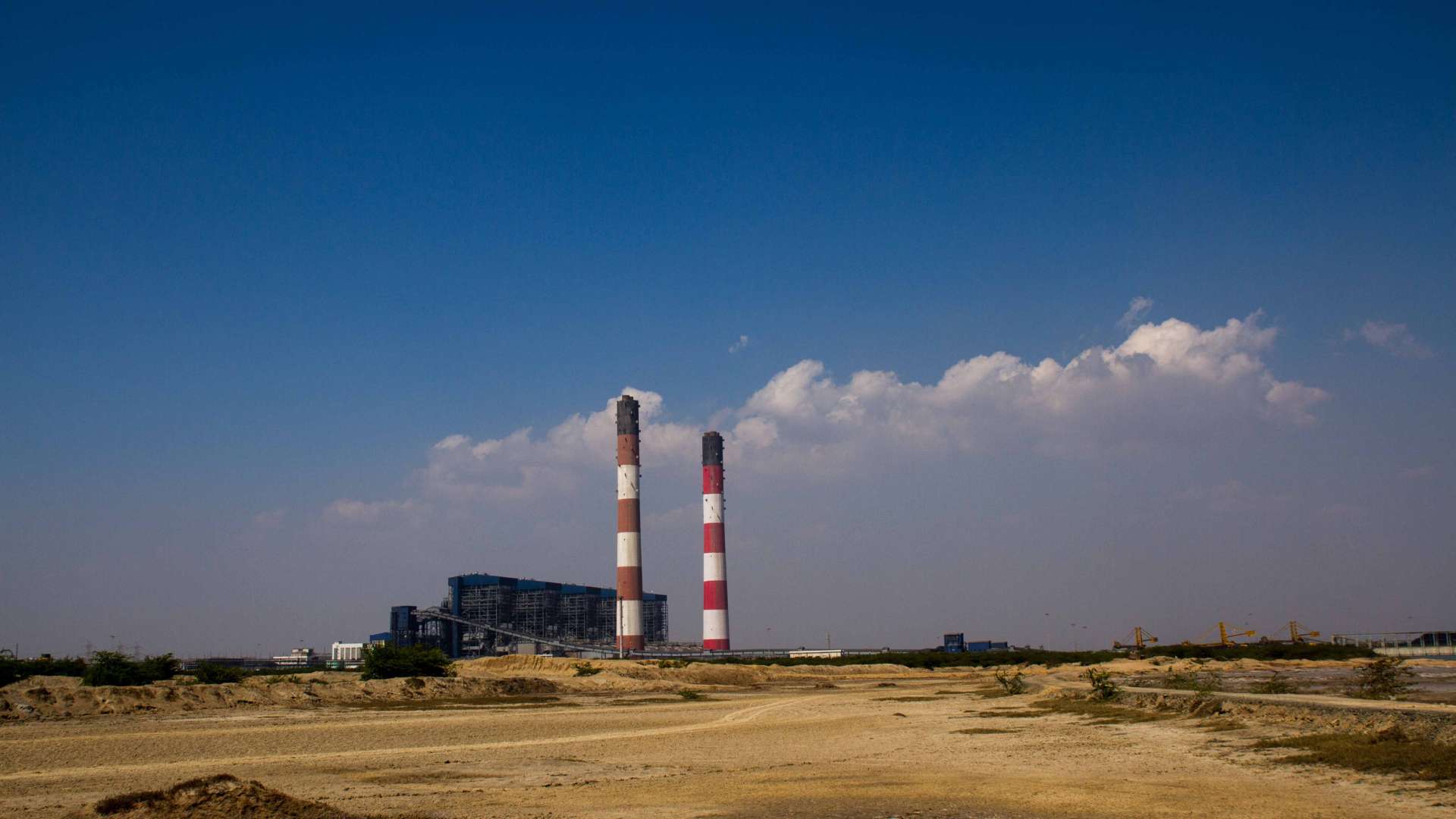Fishing and farming families in Gujarat took on the International Finance Corporation (IFC), the World Bank Group’s private-sector lending arm, for funding the destructive Tata Mundra Ultra Mega Power Plant. The project devastated local livelihoods, fishing, farming, salt-panning, and animal rearing, and IFC ignored warnings from its own accountability office.
In April 2015, represented by EarthRights International, communities led by Budha Ismail Jam filed a lawsuit in U.S. courts. The case, Jam v. IFC; challenged IFC’s claim of “absolute immunity” from suit in the United States. It was the first time project-affected communities sued an international financial institution.
From the start, IFC knew Tata Mundra was a high-risk project with potentially “significant” and “irreversible” social and environmental impacts. Still, it provided a critical $450 million loan, enabling the plant’s construction and giving IFC immense influence over its design and operation. Yet IFC failed to enforce safeguards and ignored evidence of harm:
-
Displacement of local families and destruction of drinking and irrigation water sources.
-
Coal ash contaminating crops and dried fish, worsening respiratory illnesses.
-
Collapse of marine ecosystems and fish populations central to local livelihoods.
As plaintiff Budha Ismail Jam said: “After nearly 10 years of IFC approving finances for the project, promising jobs, development and ending poverty, the power plant has taken what little we had and left us with less than before.”
The IFC’s own Compliance Advisor Ombudsman (CAO) issued a scathing report, confirming failures to meet IFC’s environmental and social standards. IFC rejected or ignored most of those findings. At hearings, IFC’s lawyers even argued that being held accountable for its commitments would undermine its willingness to lend.
Plaintiffs of the case:
The plaintiffs include Budha Ismail Jam, Sidik Kasam Jam, and Kashubhai Abhrambhai Manjalia, fishermen living at the bunders (fishing harbors) closest to the Tata Mundra plant. Tragadi bunder, directly beside the outfall channel, faces daily discharge of hot cooling water, while Kotadi bunder lies next to the intake channel and coal conveyor belt. Their livelihoods and way of life are increasingly threatened by declining fish stocks and the loss of marine resources their communities have relied on for generations.
Ranubha Jadeja, a farmer from Navinal village, has seen his wells ruined by rising groundwater salinity and his farmland damaged by coal ash and dust.
The case also represents the fishermen’s organization Machimar Adhikar Sangharsh Sangathan (MASS) and the Navinal Panchayat, a local government body. The named plaintiffs filed suit on their own behalf and on behalf of similarly affected community members in a potential class action.
Timeline of the Case
2008
IFC approved a $450 million loan for the Tata Mundra coal plant, despite classifying it as “high risk” with potentially irreversible environmental and social harms.
2011
Local fishing communities, through MASS, filed a complaint with IFC’s accountability office (CAO) highlighting threats to health, livelihoods, and the environment.
2013
The CAO issued a scathing audit criticizing IFC’s failures in due diligence and supervision. IFC rejected or ignored most findings.
2015
The CAO’s monitoring report confirmed IFC had taken no remedial action. In April, EarthRights filed suit on behalf of communities in Washington, D.C., marking the first time project-affected people sued an international financial institution. IFC argued it had “absolute immunity.”
2016–2017
A district court dismissed the case; the appeals court upheld dismissal but noted IFC’s conduct had caused serious harm. Judge Nina Pillard criticized IFC’s “absolute immunity” as wrongly decided.
2018
Plaintiffs petitioned the U.S. Supreme Court. The Court agreed to hear the case.
2019
In a landmark 7–1 decision, the Supreme Court ruled that international organizations like IFC are not entitled to absolute immunity and can be sued under the same exceptions that apply to foreign governments.
2020
Back in district court, the case was again dismissed on technical grounds. An external review commissioned by IFC found its approach to remedies “inadequate.”
2021
The D.C. Circuit Court upheld dismissal, despite acknowledging IFC’s role in the harm.
2022
The U.S. Supreme Court declined to review the case again, ending this round of litigation. Communities continued to demand accountability.
2023
IFC released its long-delayed “Approach to Remedial Action,” widely criticized for failing to provide real remedies for communities like those in Tata Mundra.
Impact
Although the lawsuit was ultimately dismissed, Jam v. IFC shattered the notion that international financial institutions are “absolutely immune.” It marked a turning point: IFC and the World Bank Group can no longer claim they are above the law. The Tata Mundra communities continue to push for accountability.
Key Documents & References:
- Report – Coal Currency
- IFC Loan Agreement-July 2015
- Jam v. IFC Complaint (District Court) – April 2015
- IFC Motion to Dismiss (District Court) – July 2015
- Declaration of Fady M. Zeidan – July 2015
- Opposition to Motion to Dismiss – September 2015
- Declaration of Natalie Bridgeman Fields – September 2015
- Declaration of Kristen Genovese – September 2015
- Declaration of Kate Watters – September 2015
- Declaration of David B. Hunter – September 2015
- IFC’s Reply in Support of Motion to Dismiss – October 2015
- Dr. Erica R. Gould Amicus for Appellant – August 2016

